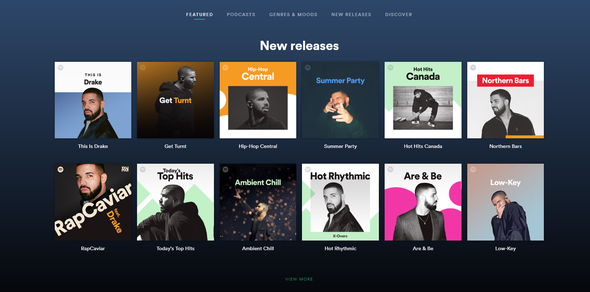In case you hadn’t noticed, film soundtracks are kind of a big deal nowadays.
The likes of The Greatest Showman, Mamma Mia! Here We Go Again, and A Star Is Born’s soundtrack albums have notched up a more-than-impressive 2.7 billion Spotify streams between them since their respective releases; heck, The Greatest Showman’s has even been the subject of a covers album featuring some of the biggest names in the modern music business. Not bad for ‘a dumb, dull, lackluster letdown’, eh?
The thing that interests me, though, is that the streaming success of these soundtracks completely bucks the trend of everything that’s proven to be popular on Spotify over the last few years.
Now, it goes without saying that I don’t know a sure-fire way to guarantee streaming success — if I did, I’d probably be writing this from a yacht. However, what I do know is that there tends to be a pattern as far as the success of ‘smash-hit singles’ on streaming services goes.
As a rule, the tracks that perform best on Spotify et al. tend to be the #HotNewSingle from the latest blistering young thing: the Drakes, Grandes, or Sheerans of the world.
These songs generally enjoy a strong initial streaming tally from the artist’s army of (usually young) fans; then, this initial success leads to them being featured on a legion of Spotify’s editorially-curated playlists, with the artist’s face plastered all over their covers in order to ensure that you definitely don’t miss the Super-Hyped New Release from whichever artist has popped a song out into the world that week. Now, that, dear reader, is what we call a hit in this twenty-first century streaming landscape.

Why, then, have these not-overtly-targeted-to-young-people movie soundtracks been so popular in this otherwise pop-driven streaming landscape?
Sure, A Star Is Born’s success on streaming platforms can, perhaps, be explained by the fact that the movie’s female lead also happens to be one of the biggest pop stars on the planet. The popularity of Mamma Mia! Here We Go Again, too, can maybe be explained by the fact that all the tracks from that movie are covers of freakin’ Abba songs.
The Greatest Showman, though? Yeah, that’s a strange one.
There’s no teen-pop star at the heart of it (no offence, Hugh), and the soundtrack didn’t enjoy a huge amount of radio or editorial playlist support upon its initial release at the end of 2017; yet, despite that, it’s been almost inescapably popular. The soundtrack spent 24 weeks at number one in the UK album charts; numerous tracks from the film were covered on the latest series of The X Factor; and, crucially, it’s amassed a jaw-dropping 1.7 billion streams on Spotify.
So, why on earth has the soundtrack to The Greatest Showman been quite so popular on Spotify?
Well, first things first: the songs are great. They’re catchy as hell, performed perfectly, and well-written to a tee; and, crucially, they’ve nailed the knack of taking a classic melody and layering it over a twenty-first-century instrumental. (Heck, the first time I heard the title track, I honestly thought it was a new Imagine Dragons single). It’s this contemporary sound — and one that’s relatively far removed from the sound that we typically associate with musicals — that’s allowed these tracks to reach audiences that wouldn’t usually check out a musical soundtrack.
Not only that, but they come armed with the ultimate promo tool: a supermassive film, and all the publicity efforts, promotional appearances, and high-profile interviews that go along with that. Think product placement, and how much publicity and income that generates for the company who pay to feature their product in the film: now, imagine if the product in question is a collection of songs and that it’s literally the focal point of this smash-hit film.
So, it seems that the formula for the Spotify success of The Greatest Showman’ soundtrack is as follows: take a bunch of genuinely great songs, add in a box office-destroying Hollywood blockbuster and throw in the backing of a seriously powerful multi-million-dollar promotional juggernaut, and voila! You’ve hit the streaming jackpot!
Then, of course, once the tracks’ popularity has been proven by this initial barrage of streams, Spotify were able to add the film’s tracks to their popular editorially-curated playlists with minimal risk; which then, in turn, led to a further surge in streams, which then helped to ensure that the album topped the UK album charts for most of the year/equalled records set by Adele and The Beatles/was the biggest-selling album of 2018 in the United Kingdom.
Seems simple, eh? Frankly, I’m not sure why everyone’s not doing it.



